
Three Blu-rays from Twilight Time span the espionage genre from World War Two to the fall of Communism in the late 1980s, each mixing personal drama with larger political issues in their own distinct ways.
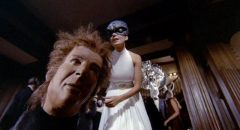
Although a very prolific director (of mostly television) from the 1950s to the ’90s, Paul Wendkos isn’t a well-known name today, though at his best he had a real flair for unsettling visuals which suited the burgeoning paranoia of the ’70s. That style is well showcased in The Brotherhood of the Bell (1970) and The Mephisto Waltz (1971).
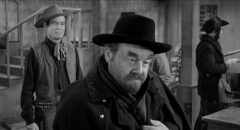
Recent viewing includes a stark western (compared to the work of Dreyer by Bertrand Tavernier), an entertaining adventure souffle from frequent collaborators John Huston and Humphrey Bogart, and a ground-breaking satirical drama from Robert Aldrich which dealt sympathetically with lesbianism in the late 1960s.

A decidedly mixed bag of recent viewing; a pair of young adult zombie stories — the Maze Runner Trilogy (2014-18) and the small-scale The Girl with All the Gifts (2016); a taut ’50s prison escape noir (Crashout, 1955) and a polished new crime noir (Dragged Across Concrete, 2018); a minor, dull thriller (All the Devil’s Men, 2018); and a bloated, enervatingly pretentious remake of a genre classic (Suspiria, 2018).

A pair of recent Blu-rays from Shout! Factory bookend ’70s horror with John Hayes’ Grave of the Vampire (1972), a too-little-known cheap exploitation feature which revitalizes vampire mythology and William Girdler’s The Manitou (1978), a low-budget studio movie with a better-than-average cast which plays a variation on demonic possession but fails to find an effective tone.
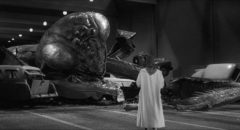
Blu-ray technology is lavished on a pair of cheap 1950s sci-fi/horror movies with Shout! Factory’s The Deadly Mantis (1957) and Kino Lorber’s The Maze (1953), the latter is superbly restored 3D. Both movies get informative commentaries and other extras – and both probably never looked this good even in their original theatrical releases.
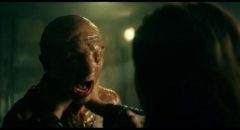
Style trumps substance in several recently viewed movies: from Stefano Sollima’s troubling depiction of mythic threats on the U.S. southern border in Sicario: Day of the Soldado (2018) to Julius Avery’s disappointing exploitation of World War Two horrors for cheap thrills in Overlord (2018), from Drew Goddard’s ersatz Tarantino-like narrative play in Bad Times at the El Royale (2018) to Kenneth Branagh’s glossy rehash of Agatha Christie’s Murder on the Orient Express (2017).
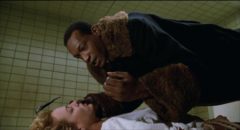
Clive Barker’s distinctive prose style, while it creates vivid and highly visual stories, is difficult to transform into movies because the themes and meanings of the stories are strangely abstract. While Barker himself has been his own most successful adapter, there have been many attempts to capture his vision on film – some better than others. George Pavlou’s Rawhead Rex (1986) misses the mark, but Bernard Rose’s Candyman almost succeeds but is diverted by moving the story from Liverpool to Chicago.